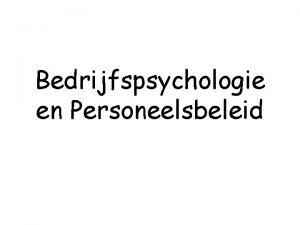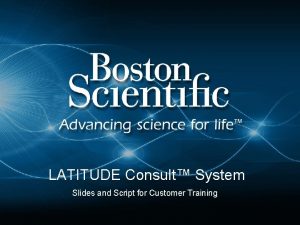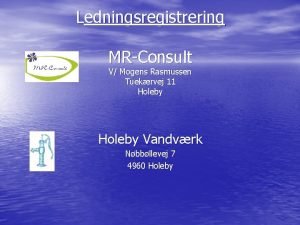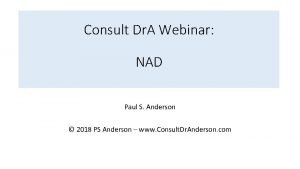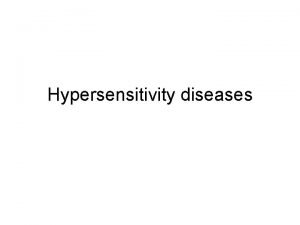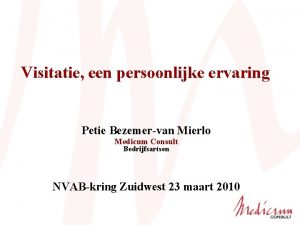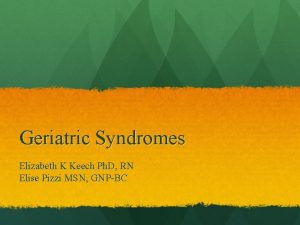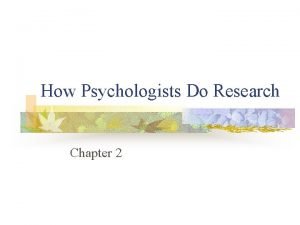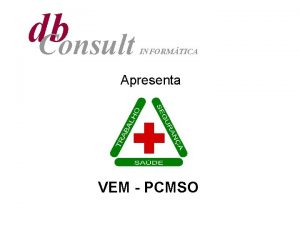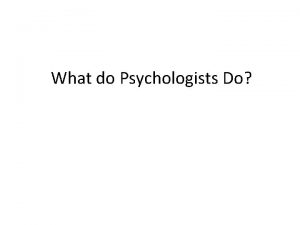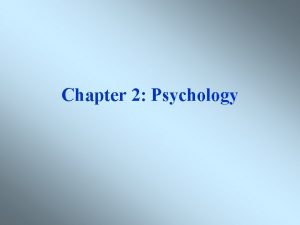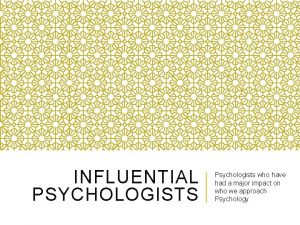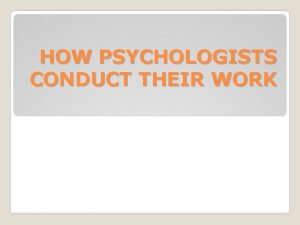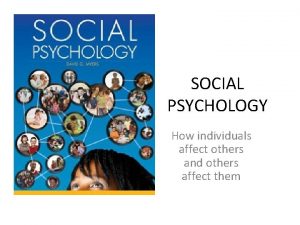What Psychologists Do Some psychologists research others consult
























- Slides: 24

What Psychologists Do Some psychologists research, others consult – or apply psychological knowledge in therapy, and others teach Clinical Psychologists – Largest group of psychologists Help people with psychological problems Work in hospitals, prisons, universities and private practices NOT PSYCHIATRISTS Psychiatrist is a medical doctor and can prescribe

What Psychologists Do Counseling Psychologists Treat those with adjustment problems Employed by businesses, colleges and universities School Psychologists Identify students with problems that interfere with learning (peer group, family, psychological, or learning issues) How do school psychologists operate? Student placement is a major responsibility

What Psychologists Do Educational Psychologists Focus on course planning and methods for a school system Research how learning is affected by psychological, cultural, economic and instructional factors Developmental Psychologists Study the changes throughout a persons life Include physical, emotional, cognitive, and social Attempt to sort heredity and environmental influences

What Psychologists Do Personality Psychologists Identify characteristics or traits Share an interest in origins of problems with clinical psych Focus on anxiety, aggress, gender roles, etc. Social Psychologists Focus on behaviors in social situations Examples?

What Psychologists Do Experimental Psychologists Research basic processes (such as nerve function, sensation, perception) Some focus on relationship between biological changes and psychological events – called biological psychologists Engage in basic research – research that has no immediate application and is done for its own sake

Psychologists: Other Specialties Industrial and Organizational Focus on people and work Environmental Focus on how people influence and are influenced by their environment Consumer Study the behavior of shoppers to predict behavior

Psychologists: Other Specialties Forensic Work in the criminal justice system Testify about competence, problems that may cause criminal behavior, select officers, help officers cope with job stresses Health Examine how behavior and mental processes relate to physical health

A History of Psychology Chapter 1 Section 3

Roots from Ancient Greece “Know thyself” – Socrates Introspection – “looking within” How we examine thoughts and feelings Associationism – a learned connection between two ideas or events Ancient Greeks theorized about various problems such as confusion and bizarre behavior Hippocrates suggested odd behavior was caused by abnormalities in the brain

Middle Ages Believed behavior was caused by demonic possession Believed possession was punishment for sins or dealing with the devil Used tests to determine if a person was possessed Float test

Birth of Modern Science Modern psychology was born in the 1800’s 1879 – beginning of psychology as a modern lab science Wilhelm Wundt Structuralism – concerned with discovering the basic elements of consciousness Objective sensations and subjective

Modern Science William James Functionalism – concerned with how mental processes help us adapt Principles of Psychology – first psych text book, 1890 Include behavioral observation Functional vs. structuralism

Modern Science John B. Watson Behaviorism – scientific study of observable behavior If you reward, behavior is learned B. F. Skinner Used reinforcement (if you reward for an action, the action will be repeated)

Modern Science Gestalt School – emphasize the tendency to organize perceptions into meaningful wholes Reject the idea that experience can be broken down into parts Reject the idea that psychologists should concentrate only on observable behavior Believe learning is active and purposeful

Modern Science Sigmund Freud Psychoanalysis – emphasizes the importance of unconscious motives and internal conflicts Psychodynamic thinking – assumed most of what exists in the mind is unconscious and consists of conflicting impulses, urges and wishes

Contemporary Perspectives Chapter 1 Section 4

Biological Perspective Emphasizes influence of biology on behavior Assume mental processes are made possible by the nervous system Use CAT and PET scans to show what parts of the brain go with which mental process Interested in influence of genes and hormones

Evolutionary Perspective Focuses on evolution of behavior and mental processes Suggest many behavior patterns have a hereditary basis Focus more on inherited tendencies than environmental influences

Cognitive Perspective Emphasizes role of thoughts in determining behavior Rooted in “Know thyself”, along with structuralism, functionalism, Gestalt Also view the mind as a computer Believe behavior is influenced by values, perceptions and choices

Humanistic Perspective Stresses self-fulfillment, consciousness, self-awareness, and capacity to make choices What is considered most important? Personal experiences Friction between humanistic and behaviorists

Psychoanalytical Perspectives Stresses influence of unconscious forces on behavior Dominated in the 40 s and 50 s (example – a person that intentionally bumps into you may be venting unconscious anger toward parents)

Learning Perspective Emphasizes the effects of experience on behavior Learning has different meanings in psychology Behaviorists are concerned with what an organism does, not what it knows. Focused on learning habits though repetition and reinforcement Social-learning theory suggests people can change their environments

Social-Learning Theory People can learn intentionally by observing others Conscious observational learning provides a storehouse of responses to situations People can choose to do what they have learned Have a cognitive leaning – believe people act in a way only when they recognize the situation calls for it

Sociocultural Perspective Studies influences of ethnicity, gender, culture and socioeconomic status Ethnicity Includes study of bilingualism Vulnerability to health problems Prejudice Gender, the state of being male or female
 Explain why some countries are rich while others are poor
Explain why some countries are rich while others are poor Who is this?
Who is this? Elastic collision vs inelastic
Elastic collision vs inelastic Some prepositions show time and place and others add detail
Some prepositions show time and place and others add detail The ______ of a seismograph moves.
The ______ of a seismograph moves. Md consult
Md consult Md consult
Md consult Encompasslit
Encompasslit Bedrijfspsychologie opleiding
Bedrijfspsychologie opleiding Truck consult
Truck consult Boston scientific latitude troubleshooting
Boston scientific latitude troubleshooting Ledningsregistrering
Ledningsregistrering Sentinel manager wonderware
Sentinel manager wonderware Consult dr anderson
Consult dr anderson Brockmann consult
Brockmann consult Erlang file consult
Erlang file consult Mbconsult
Mbconsult Consult ease
Consult ease Smfm consult series
Smfm consult series Uf med consult
Uf med consult Metodo learn
Metodo learn Mosby's nursing consult
Mosby's nursing consult Studentconsult
Studentconsult Petie bezemer
Petie bezemer Consult geri rn
Consult geri rn








